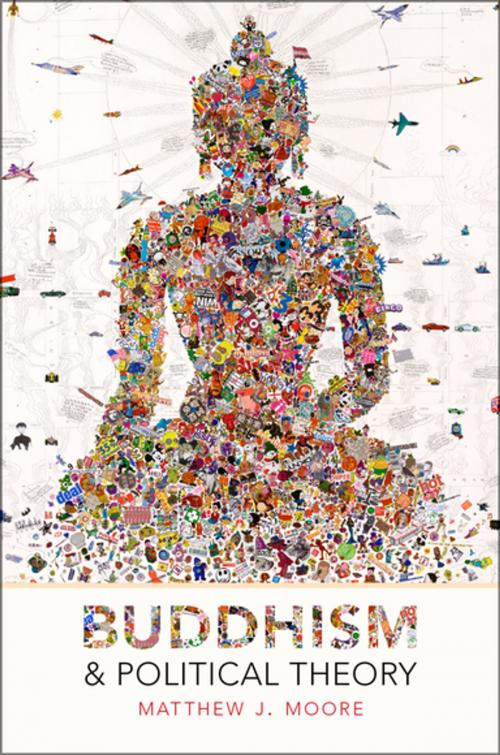Buddhism and Political Theory
Nonfiction, Social & Cultural Studies, Political Science, Government, Social Policy, Religion & Spirituality, Eastern Religions, Buddhism| Author: | Matthew J. Moore | ISBN: | 9780190631529 |
| Publisher: | Oxford University Press | Publication: | May 3, 2016 |
| Imprint: | Oxford University Press | Language: | English |
| Author: | Matthew J. Moore |
| ISBN: | 9780190631529 |
| Publisher: | Oxford University Press |
| Publication: | May 3, 2016 |
| Imprint: | Oxford University Press |
| Language: | English |
Despite the recent upsurge of interest in comparative political theory, there has been virtually no serious examination of Buddhism by political philosophers in the past five decades. In part, this is because Buddhism is not typically seen as a school of political thought. However, as Matthew Moore argues, Buddhism simultaneously parallels and challenges many core assumptions and arguments in contemporary Western political theory. In brief, Western thinkers not only have a great deal to learn about Buddhism, they have a great deal to learn from it. To both incite and facilitate the process of Western theorists engaging with this neglected tradition, this book provides a detailed, critical reading of the key primary Buddhist texts, from the earliest recorded teachings of the Buddha through the present day. It also discusses the relevant secondary literature on Buddhism and political theory (nearly all of it from disciplines other than political theory), as well as the literatures on particular issues addressed in the argument. Moore argues that Buddhist political thought rests on three core premises--that there is no self, that politics is of very limited importance in human life, and that normative beliefs and judgments represent practical advice about how to live a certain way, rather than being obligatory commands about how all persons must act. He compares Buddhist political theory to what he sees as Western analogues--Nietzsche's similar but crucially different theory of the self, Western theories of limited citizenship from Epicurus to John Howard Yoder, and to the Western tradition of immanence theories in ethics. This will be the first comprehensive treatment of Buddhism as political theory.
Despite the recent upsurge of interest in comparative political theory, there has been virtually no serious examination of Buddhism by political philosophers in the past five decades. In part, this is because Buddhism is not typically seen as a school of political thought. However, as Matthew Moore argues, Buddhism simultaneously parallels and challenges many core assumptions and arguments in contemporary Western political theory. In brief, Western thinkers not only have a great deal to learn about Buddhism, they have a great deal to learn from it. To both incite and facilitate the process of Western theorists engaging with this neglected tradition, this book provides a detailed, critical reading of the key primary Buddhist texts, from the earliest recorded teachings of the Buddha through the present day. It also discusses the relevant secondary literature on Buddhism and political theory (nearly all of it from disciplines other than political theory), as well as the literatures on particular issues addressed in the argument. Moore argues that Buddhist political thought rests on three core premises--that there is no self, that politics is of very limited importance in human life, and that normative beliefs and judgments represent practical advice about how to live a certain way, rather than being obligatory commands about how all persons must act. He compares Buddhist political theory to what he sees as Western analogues--Nietzsche's similar but crucially different theory of the self, Western theories of limited citizenship from Epicurus to John Howard Yoder, and to the Western tradition of immanence theories in ethics. This will be the first comprehensive treatment of Buddhism as political theory.















